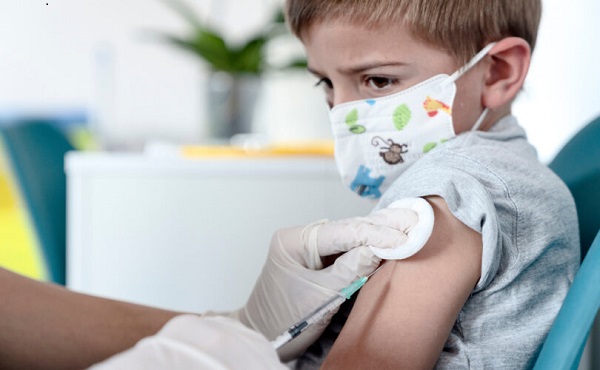Health
Gardening Pain-free from Pursuit Physiotherapy

 Follow these basic body mechanics tips for gardening safely!
Follow these basic body mechanics tips for gardening safely!
Gardening season is here! We want you to enjoy the outdoors without injuring yourself. It’s easy to get overzealous and spend hours in the garden without noticing an aching back or neck until it’s too late. But don’t worry, just because you have a long ‘to do’ list doesn’t mean you have to suffer the consequences. By planning ahead and being smart about your body mechanics you can help prevent soreness and injuries.
Follow these easy tips for staying healthy throughout the gardening season:
Lift properly to protect your back.
Remember to bend your knees and engage your core muscles; use your leg muscles to squat and don’t bend with your back.
- Avoid lifting and twisting through your back – instead keep the load close to your body and pivot your feet and trunk together
- Avoid carrying heavy loads on 1 side of your body – balance it out on both sides or lighten up the load and take more trips. Also consider getting help for heavy lifting – you can’t do it all!
Maintain good posture.
Position yourself close to the task at hand to avoid awkward reaching and twisting. Try to keep your back straight and head in a neutral position so that you are not looking up or down for extended periods of time.
- Use stools, chairs, or knee pads whenever possible to help maintain good neck and back posture.
- When pushing a wheelbarrow or lawnmower keep your back tall and head up. Also bend your knees and engage your core muscles to optimize your power and protect your spine.
- Take mini-breaks to stretch and correct your posture – try squeezing your shoulder blades together, or contracting your deep abdominal (TA) muscles.
Use Proper Tools to Reduce Strain
- Use knee pads for kneeling and avoid sustained squatting. This will give your knees, hips, ankles and back a break.
- Use a step stool or tools with extended handles to make overhead work easier. Bring yourself closer to your task to avoid awkward reaching and reduce neck and shoulder strain.
- Use tools with good grips or ergonomic handles to reduce fatigue on your hand and forearm muscles. Ensure they are a comfortable fit for your hand size.
Prevent Repetitive Strain Injuries
Doing the same task over and over will put excessive strain on certain body parts and muscle groups, leading to pain and injury. Here are some self-management tips to help avoid RSI’s:
- Change positions frequently to avoid stiffness and strain on certain body parts. For example try raking on both sides.
- Alternate tasks to add variety to your body movements and avoid static postures or repetitive lifting. For example do 10 minutes of weeding followed by 10 minutes of pruning.
- Take breaks to stretch and hydrate. It is important to give your body some time to recover, and adding these mini-breaks can help improve your work endurance and efficiency.
- Don’t overdo it! Create a realistic plan ahead of time so that you aren’t trying to get all your tasks done in a single day or weekend. Plan to spread your workload out over several days or weeks to avoid overuse injuries.
- Never work through pain. Listen to your body and stop when you are getting tired or sore. The task will still be there the next day or week!
Keep your body limber
- Warm-up before gardening with some light walking or gently swinging your arms and legs. This helps increase your heart rate and gets blood flowing to the muscles so they are ready to work.
- Take stretch breaks. Do some of your favourites and try to target all your major body parts – neck, shoulders, back, and legs. This will keep you feeling loose and flexible and prevent muscle tension from building up. Move slowly and hold each position for approximately 10-15 seconds.
- Cool-down. An easy walk around the yard and some gentle stretching will help relieve tension after your work and prevent muscle stiffness.
We hope these tips help keep you active, healthy, and pain-free throughout the spring and summer. If you have any lingering pain or specific concerns please do not hesitate to book an appointment for a one-on-one session with one of our physiotherapists. We will be able to assess and diagnose your injury, as well as provide hands on treatment and a therapeutic exercise program to address your specific needs.
Click for more information about Pursuit Physiotherapy.
Alberta
On gender, Alberta is following the science

Despite falling into disrepute in recent years, “follow the science” remains our best shot at getting at the truth of the physical sciences.
But science, if we are to place our trust in it, must be properly defined and understood; it is at its essence an ever-changing process, a relentless pursuit of truth that is never “settled,” and one that is unafraid to discard old hypotheses in the face of new evidence.
And it is in this light—in the unforgiving glare of honest science—that Alberta Premier Danielle Smith’s three new legislative initiatives around gender policy are properly understood, notwithstanding the opprobrium they’ve attracted from critics.
Bill 26, the Health Statutes Amendment Act, proposes to prohibit the prescription of puberty blockers and cross-gender hormones for the treatment of gender dysphoria to youth aged 15 and under. It would allow minors aged 16 and 17 to begin puberty blockers and hormone therapies for gender “reassignment” and “affirmation” purposes only with parental, physician, and psychologist approval. The bill also prohibits health professionals from performing sex reassignment surgeries on minors.
Bill 27, the Education Amendment Act, seeks to enshrine parents’ rights to be notified if their kids change their names/pronouns at school, and it gives parents the right to “opt in” to what sort of gender and sex education their kids are exposed to in school.
And Bill 29, the Fairness and Safety in Sports Act, is designed to protect females in sports by ensuring that women and girls can compete in biological female-only divisions, while supporting the formation of co-ed opportunities to support transgender athletes.
Each of these initiatives is entirely reasonable, given what we know of the science underpinning “gender care,” and of the undeniable advantages that a male physique confers upon biological males competing in sports.
The notion that the trifecta of puberty blockers, cross-gender hormones, and revisionist surgery is a pathway to good health was a hypothesis initially devised by Dutch researchers, who were looking to ease the discomfort of transgender adults struggling with incongruence between their physical appearance and their gender identities. As a hypothesis, it was perhaps reasonable.
But as the UK’s Cass Review exposed in withering detail last spring, its premises were wholly unsupported by evidence, and its implementation has caused grievous harm for youth. As Finnish psychiatrist Riittakerttu Kaltiala, one of the architects of that country’s gender program, put it last year, “Gender affirming care is dangerous. I know, because I helped pioneer it.”
It’s no accident, then, that numerous European jurisdictions have pulled back from the “gender affirming care” pathway for youth, such as Sweden, Finland, Belgium, the Netherlands, and the United Kingdom.
It makes perfect sense that Canadians should be cautious as well, and that parents should be apprised if their children are being exposed to these theories at school and informed if their kids are caught up in their premises.
Yet the Canadian medical establishment has remained curiously intransigent on this issue, continuing to insist that the drug-and-surgery-based gender-affirming care model is rooted in evidence.
Premier Smith was asked by a reporter last month whether decisions on these matters aren’t best left to discussions between doctors and their patients; to which she replied:
“I would say doctors aren’t always right.”
Which is rather an understatement, as anyone familiar with the opioid drug crisis can attest, or as anyone acquainted with the darker corners of medical history knows: the frontal lobotomy saga, the thalidomide catastrophe, and the “recovered memories of sexual abuse” scandal are just a few examples of where doctors didn’t “get it right.”
As physicians, we advocate strongly for self-regulation and for the principle that medical decisions are private matters between physicians and patients. But self-regulation isn’t infallible, and when it fails it can be very much in the interests of the public—and especially of patients—for others to intervene, whether they be journalists, lawyers, or political leaders.
The trans discussion shouldn’t be a partisan issue, although it certainly has become one in Canada. It’s worth noting that Britain’s freshly elected Labour Party chose to carry on with the cautious approach adopted by the preceding administration in light of the Cass Review.
Premier Smith’s new polices are eminently sensible and in line with the stance taken by our European colleagues. None of her initiatives are “anti-trans.” Instead, they are pro-child, pro-women, and pro-athlete, and it’s difficult to see how anyone can quibble with that.
Dr. J. Edward Les, MD, is a pediatrician in Calgary, senior fellow at the Aristotle Foundation for Public Policy, and co-author of Teenagers, Children, and Gender Transition Policy: A Comparison of Transgender Medical Policy for Minors in Canada, the United States, and Europe.
Alberta
Alberta mother accuses health agency of trying to vaccinate son against her wishes

From LifeSiteNews
Alberta Health Services has been accused of attempting to vaccinate a child in school against his parent’s wishes.
On November 6, Alberta Health Services staffers visited Edmonton Hardisty School where they reportedly attempted to vaccinate a grade 6 student despite his parents signing a form stating that they did not wish for him to receive the vaccines.
“It is clear they do not prioritize parental rights, and in not doing so, they traumatize students,” the boy’s mother Kerri Findling told the Counter Signal.
During the school visit, AHS planned to vaccinate sixth graders with the HPV and hepatitis B vaccines. Notably, both HPV and hepatitis B are vaccines given to prevent diseases normally transmitted sexually.
Among the chief concerns about the HPV vaccine has been the high number of adverse reactions reported after taking it, including a case where a 16 year-old Australian girl was made infertile due to the vaccine.
Additionally, in 2008, the U.S. Food and Drug Administration received reports of 28 deaths associated with the HPV vaccine. Among the 6,723 adverse reactions reported that year, 142 were deemed life-threatening and 1,061 were considered serious.
Children whose parents had written “refused” on their forms were supposed to return to the classroom when the rest of the class was called into the vaccination area.
However, in this case, Findling alleged that AHS staffers told her son to proceed to the vaccination area, despite seeing that she had written “refused” on his form.
When the boy asked if he could return to the classroom, as he was certain his parents did not intend for him to receive the shots, the staff reportedly said “no.” However, he chose to return to the classroom anyway.
Shortly after, he was called into the office and taken back to the vaccination area. Findling said that her son then left the school building and braved the sub-zero temperatures to call his parents.
Following his parents’ arrival at the school, AHS claimed the incident was a misunderstanding due to a “new hire,” attesting that the mistake would have been caught before their son was vaccinated.
“If a student leaves the vaccination center without receiving the vaccine, it should be up to the parents to get the vaccine at a different time, if they so desire, not the school to enforce vaccination on behalf of AHS,” Findling declared.
Findling’s story comes just a few months after Alberta Premier Danielle Smith promised a new Bill of Rights affirming “God-given” parental authority over children.
A draft version of a forthcoming Alberta Bill of Rights provided to LifeSiteNews includes a provision beefing up parental rights, declaring the “freedom of parents to make informed decisions concerning the health, education, welfare and upbringing of their children.”
-

 Brownstone Institute2 hours ago
Brownstone Institute2 hours agoThe Most Devastating Report So Far
-

 Economy14 hours ago
Economy14 hours agoCOP 29 leaders demand over a $1 trillion a year in climate reparations from ‘wealthy’ nations. They don’t deserve a nickel.
-

 Alberta12 hours ago
Alberta12 hours agoOn gender, Alberta is following the science
-

 Energy13 hours ago
Energy13 hours agoOttawa’s proposed emission cap lacks any solid scientific or economic rationale
-

 Bruce Dowbiggin1 hour ago
Bruce Dowbiggin1 hour agoCHL Vs NCAA: Finally Some Sanity For Hockey Families
-

 Brownstone Institute1 day ago
Brownstone Institute1 day agoFirst Amendment Blues
-

 Crime2 days ago
Crime2 days agoMexican cartels are a direct threat to Canada’s public safety, and the future of North American trade
-

 Business2 days ago
Business2 days agoDEI gone?: GOP lawmakers prep to clean house in federal government




